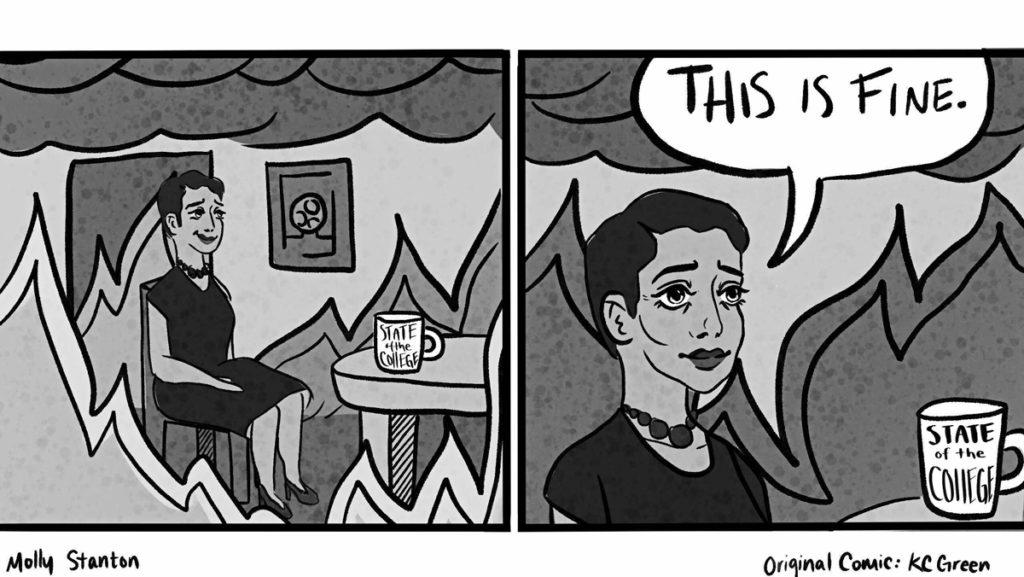Selective transparency does not count as transparency when you are making decisions that impact the entire campus community.
On March 2, the Faculty Council Executive Committee (FCEC) invited President Shirley M. Collado and La Jerne Cornish, provost and senior vice president for academic affairs, to discuss their Inside Higher Ed op-ed and the final Academic Program Prioritization (APP) decisions. Though the FCEC expressed its desire to keep the meeting open, it accepted the president and provost’s conditions to keep the session closed.
While it is understandable that some faculty members would be comfortable without the press in attendance, journalism serves as the Fourth Estate — an objective check on administrative powers. By restricting The Ithacan’s reporting, the administration is not upholding its promise of being fully transparent and open to the public. Also, by preventing faculty guests from attending, they circumscribed the type of participants and range of questions they might face.
We commend the Faculty Council for sharing the meeting report after the meeting. It is disappointing that if it were not for the report, those outside of the meeting would not have known about the fears and frustrations that faculty members shared with the administration.
It can’t help but feel like the administration is trying to protect itself from criticism and protect the college’s image.
When asked about transparency throughout the APP process in an interview with The Ithacan, Collado and Cornish said they felt as though they have been transparent. Collado said that to her, transparency is “consistent and direct ways of giving people the information that they need,” but “that doesn’t guarantee that people will like the information or agree with the decision.”
This is true. But if alumni, faculty, staff and students have been repeatedly asking for more transparency, is it not evident that the administration can offer more — or even reevaluate what transparency means to them? Even if the numbers are available, the issue at hand is that many members of the campus community do not have the context to understand the big picture of how all the data fits together.
We do not intend to unfairly criticize the administration. We are concerned with the health of the college community and implore the administration to be more inclusive with its decisions.














